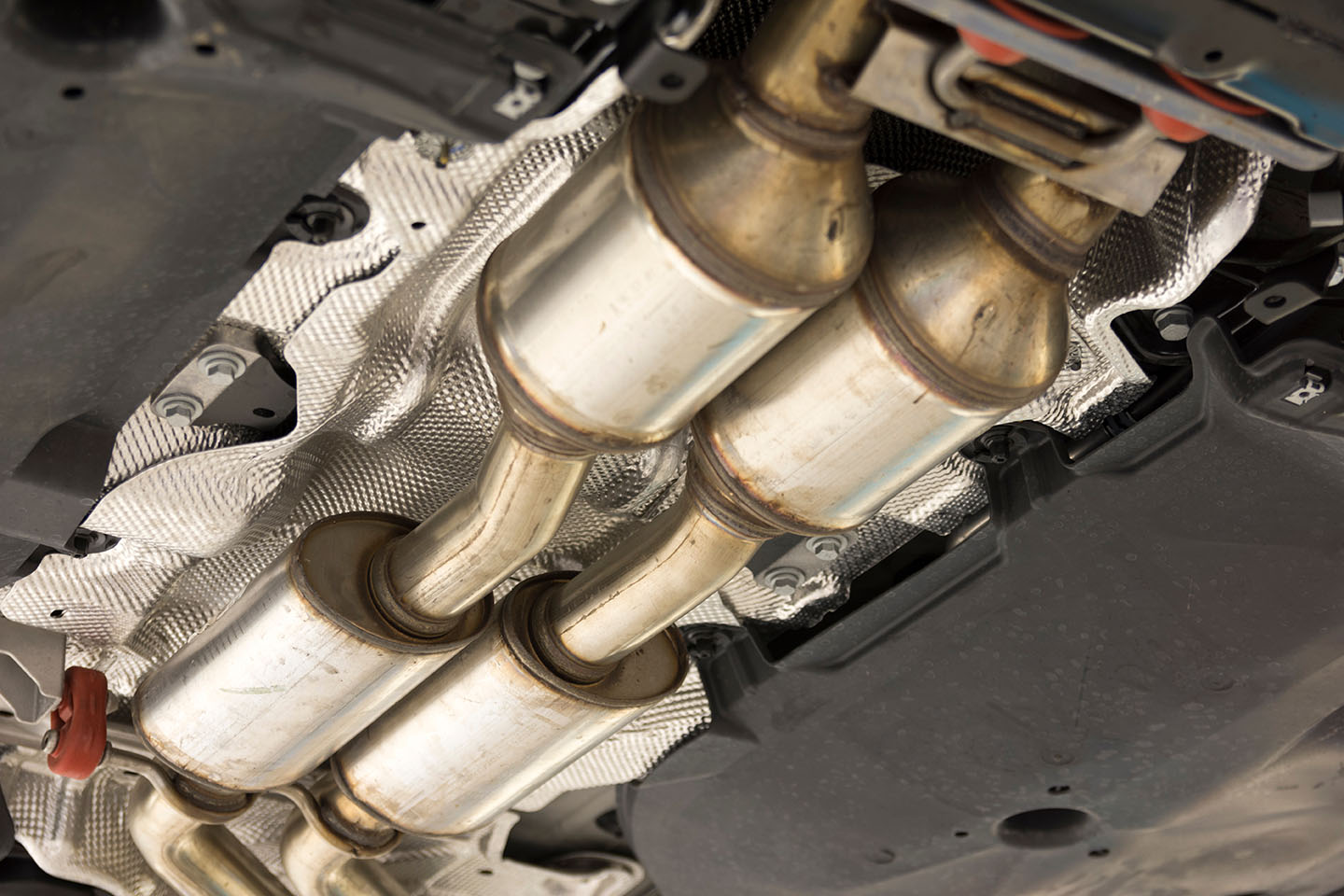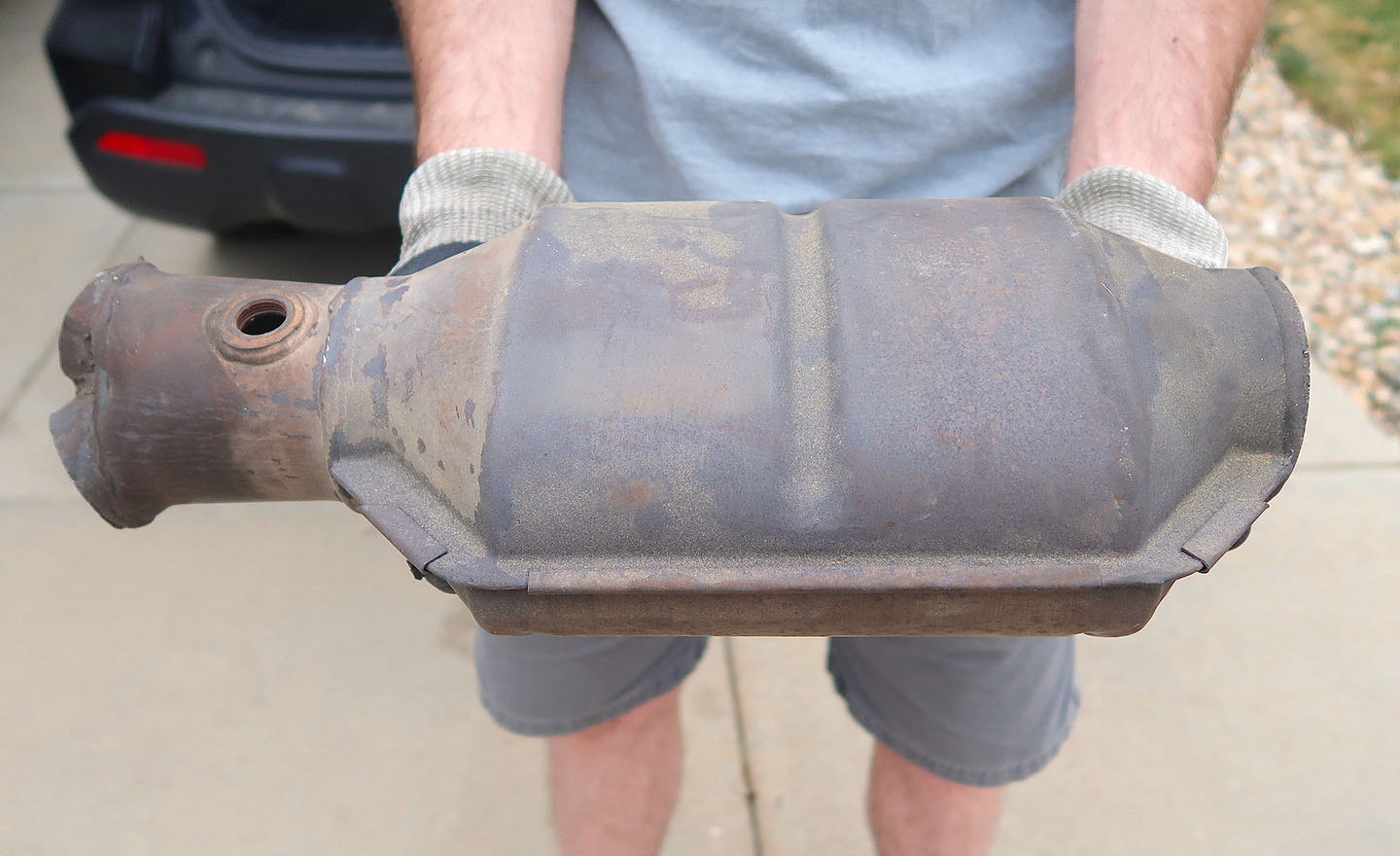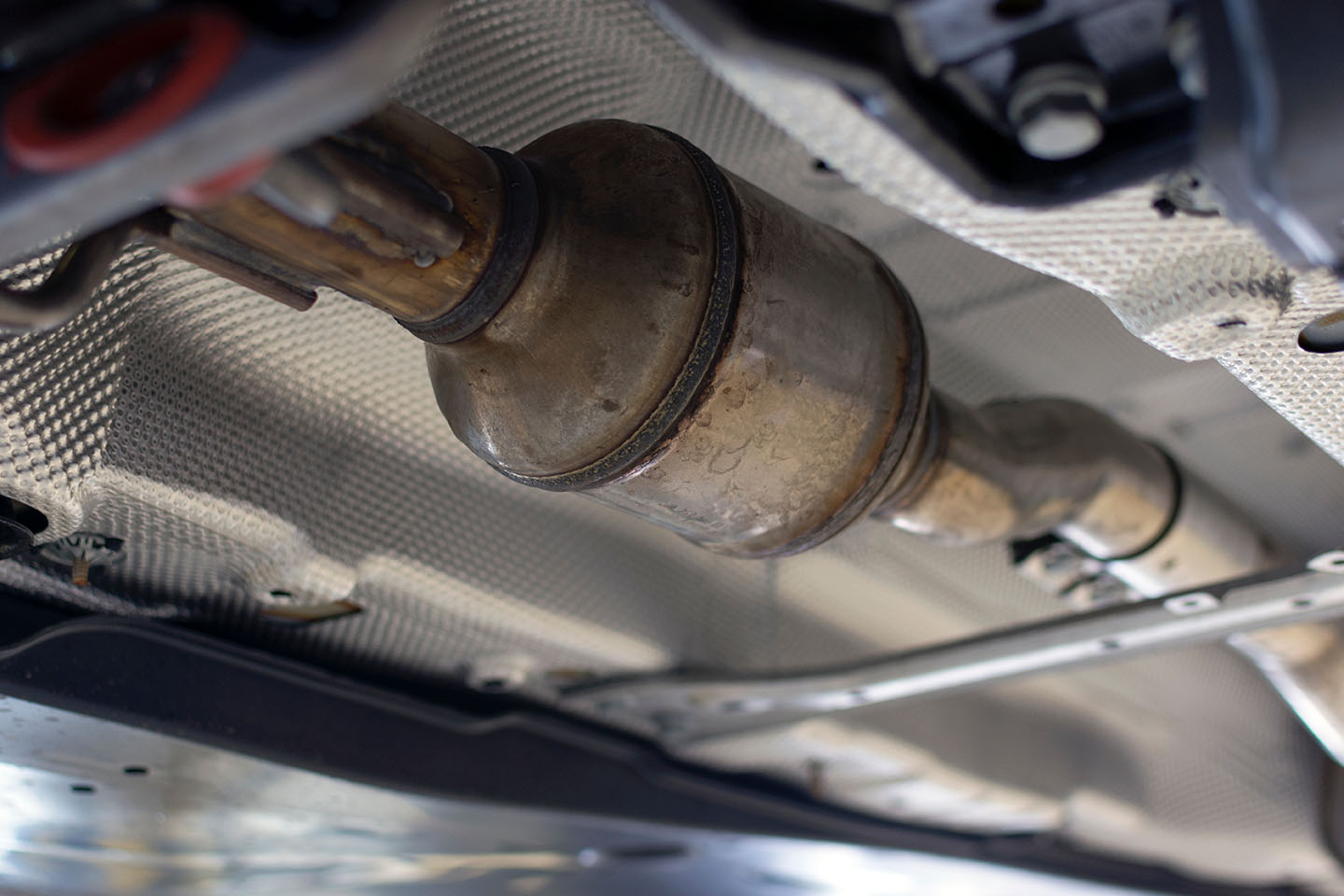Do Diesels Have Catalytic Converters?
Mar 7th 2023

Ulianenko Dmitrii/shutterstock.com
Diesel engines use various exhaust treatment methods to reduce the spread of harmful emissions and toxic gases that pollute the atmosphere, including catalytic converters, which convert exhaust into gases that form naturally in the atmosphere. Not all diesel engines have catalytic converters, but most of them do, especially more recent makes and models. Auto manufacturers started adding this equipment at the turn of the century to comply with changing environmental standards. Any diesel truck made after 2000 will likely have a catalytic converter. Learn more about these essential components and why they’re considered so valuable.
What Is a Catalytic Converter?
The word “catalytic” derives from the word “catalysis,” which is the process of increasing the rate of a chemical reaction via the introduction of a new substance known as a catalyst. The part is called a catalytic converter because it physically converts toxins, including carbon monoxide, nitrogen oxides, and hydrocarbons, into water and carbon dioxide. When working properly, it can reduce the impact of 90% of the harmful gases produced by diesel engines.
The catalyst itself is made of two ceramic blocks with metal casings that contain micro-cellular units responsible for heating up the gases, which completes the conversion process. Once the air and fuel have been burned, the hot gases are released from the engine and into the converter where it mixes with aqueous urea, known as Diesel Exhaust Fluid, which is sprayed onto the catalyst. The gases are then converted and released out of the tailpipe. Gasoline engines have catalytic converters as well but diesel engines don’t use rhodium. They also have diesel particulate filters to further eliminate any harmful particles from the exhaust gas.

Red Herring/shutterstock.com
Do Catalytic Converters Go Bad?
Yes, catalytic converters can easily fail if they aren’t being maintained. They usually have a working life of around 160,000 miles, so be prepared to replace this part after a good amount of driving. The converter will start to fill with debris and carbon over time, which can slow down the conversion process, making it harder for the part to do its job. This will slow the flow of air and fuel, which can lead to a loss of power, reduced fuel efficiency, and poor acceleration. If your converter is bad, you might also notice the smell of sulfur or see that the engine is unusually hot.
This may be due to the spread of unburnt fuel, which means there could be a problem with your glow plugs, which heat the air and fuel during combustion. Oil or coolant may have also leaked into the converter, which means there is a problem with your oil or cooling system. Test individual parts until you find the problem. Shop for replacement diesel products to resolve the issue.
Protecting Your Catalytic Converter from Theft and Damage
Your engine needs a working catalytic converter to run properly. If the converter breaks down or needs to be repaired, excess carbon and debris will spread through the engine, clogging the particulate filter and various pathways throughout the engine. This could cause the engine to ultimately seize.
You need to maintain your converter by keeping your engine clean and free of debris, especially when you are doing a lot of heavy hauling or long-distance traveling. You don’t want to get stranded in the middle of nowhere with a broken-down truck or van. Make sure your vehicle is ready for the journey ahead by having it serviced by a professional. Replace and clean the particulate filter as needed. Looking for even more adventure? Learn about the best vans for van life to find a vehicle that will take you where you want to go.
Shop All of Our Diesel Products

Ulianenko Dmitrii/shutterstock.com
Turn on the local news and you’re bound to hear stories from people who have had their catalytic converters stolen right from under their cars. These parts are extremely valuable and are in high demand, which makes them vulnerable to theft. The rate of converter theft has increased by around 1,000% over the last few years alone. Thieves can make several hundred dollars off a single part. There’s no surefire way to prevent converter theft, but do your best to park your vehicle in a secure lot or garage when it’s not in use. Catalytic converters help diesel engines run efficiently and protect the environment from harmful toxins. Keep this information in mind when protecting your converter from wear and tear.
